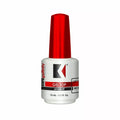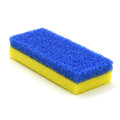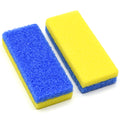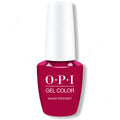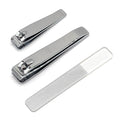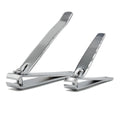Is Vitamin A the Secret to Stronger Nails?

Having strong, healthy nails is important not only for aesthetic reasons but also because nails protect and support the sensitive tips of our fingers and toes. Weak, brittle nails that split and peel can be uncomfortable and painful. Many factors influence nail strength, including genetics, health conditions, medications, injury, aging, and lifestyle habits. One nutrient that may play a key role is vitamin A.
What Does Vitamin A Have to Do with Nails?
Vitamin A is a fat-soluble micronutrient that supports several critical bodily functions. It is important for healthy vision, a robust immune system, red blood cell production, growth and development, and reproduction. Vitamin A also helps regulate cell growth and differentiation. This means it helps immature cells develop into mature cells with specific functions.
In terms of nails, vitamin A supports the growth and maturation of nail cells (called onychocytes). It also helps nails retain moisture and withstand external damage. A vitamin A deficiency can lead to several nail abnormalities including:
- Brittle, dry nails
- Thin or soft nails
- Peeling/splitting nails
- Ridges or grooves down the nail
- Slower nail growth
Boosting vitamin A intake may help strengthen weak or problem nails. Let's explore the science behind this theory.
Read: How To Make Gel X Nails Last Longer
Exploring the Scientific Evidence
Several scientific studies suggest a link between vitamin A status and nail health:
Animal Studies
- In rats fed a vitamin A-deficient diet, researchers observed abnormal nail growth, excessive curvature, and fragility. Supplementing with vitamin A corrected these issues.
- Another rat study found that a synthetic vitamin A derivative applied topically helped repair nail bed damage.
Human Studies
- Multiple studies show that patients taking isotretinoin (a medication high in vitamin A) experience nail fragility as a side effect. This suggests vitamin A plays a role in maintaining nail integrity.
- Babies born with vitamin A deficiency often have improperly formed fingernails and toenails. Supplying vitamin A after birth helps correct these defects.
- One clinical trial provided women with either a vitamin A supplement or placebo daily for 4-months. The vitamin A group reported a 10.8% increase in nail hardness versus only a 0.8% increase in the placebo group.
While more research is still needed, these findings imply vitamin A has beneficial effects on nail growth and strength. Next, let's look at how to get enough of this important nutrient.
Getting Your Fill of Vitamin A
Vitamin A exists naturally in two forms:
- Preformed vitamin A - Found in animal-based foods like liver, fish oils, butter, eggs, and some cheeses. Offered in a highly usable retinol form.
- Provitamin A carotenoids - Abundant in plant foods like carrots, sweet potatoes, kale, spinach, cantaloupe, apricots, and red peppers. Converted to retinol in the body as needed.
To maintain strong, healthy nails aim for the recommended dietary allowance (RDA) of vitamin A:
- 900 mcg RAE/day for adult men
- 700 mcg RAE/day for adult women
Eating a balanced, whole food diet with plenty of fruits, vegetables, eggs, dairy, and omega-3s should provide sufficient vitamin A for most people. Those following restrictive diets or with health conditions like cystic fibrosis that affect nutrient absorption may need supplementation.
Always consult your healthcare provider before taking any new vitamins. Consuming large amounts of preformed vitamin A long-term can cause toxicity.
Other Nutrients for Nail Health
While vitamin A shows promise for improving nail strength, it does not act alone. Nails require ample nourishment to grow tough yet flexible. Be sure to also get sufficient:
Protein
Nail cells contain a protein called keratin that strengthens nails. Low protein intake can contribute to slower nail growth, greater brittleness and peeling.
B Vitamins
B vitamins help produce nail cells and keep nails strong. Biotin (B7), in particular, is crucial for preventing cracking and breakage.
Vitamin C
This supports collagen production needed for firm, durable nails that resist splitting down the sides.
Calcium
A key mineral for nail plate keratinization. Brittle peeling nails may indicate low calcium levels.
Iron
Ferritin (stored iron) concentrations correlate with nail hardness. Without enough iron, nails often become flat, thin and fragile.
Omega-3 Fatty Acids
Help nails hold onto moisture. Brittleness and soft peeling nails can signal deficient omega-3 intake.
When consumed consistently through food and/or supplements, these essential nutrients work synergistically to maximize nail health.
Also See: Remove Full Cover Nail Tips Without Damage
Healthy Lifestyle Choices
No nutrient or pill alone can undo the damage of unhealthy lifestyle habits. Making positive changes also helps strengthen nails from the inside out:
- Stay hydrated - Drink plenty of fluids, especially water, each day. Dehydration leads to dry, brittle nails.
- Don't over-wash hands - Frequent cleaning with harsh soap strips and natural oils causes nails to thin and crack.
- Use nail treatments - Alternate moisturizers and strengtheners made with vitamins/oils to nourish nails.
- Avoid or limit artificial nails - The pressure damages the nail bed over time leading to thinning and brittleness.
- Stop nail biting and picking - This leads to infection risk and uneven, stressed nails.
- Kick smoking habit - Tobacco use slows circulation depriving nail beds of oxygen and nutrients needed to thrive.
Sample Block Quote
Nam tempus turpis at metus scelerisque placerat nulla deumantos sollicitudin delos felis. Pellentesque diam dolor an elementum et lobortis at mollis ut risus. Curabitur semper sagittis mino de condimentum.

